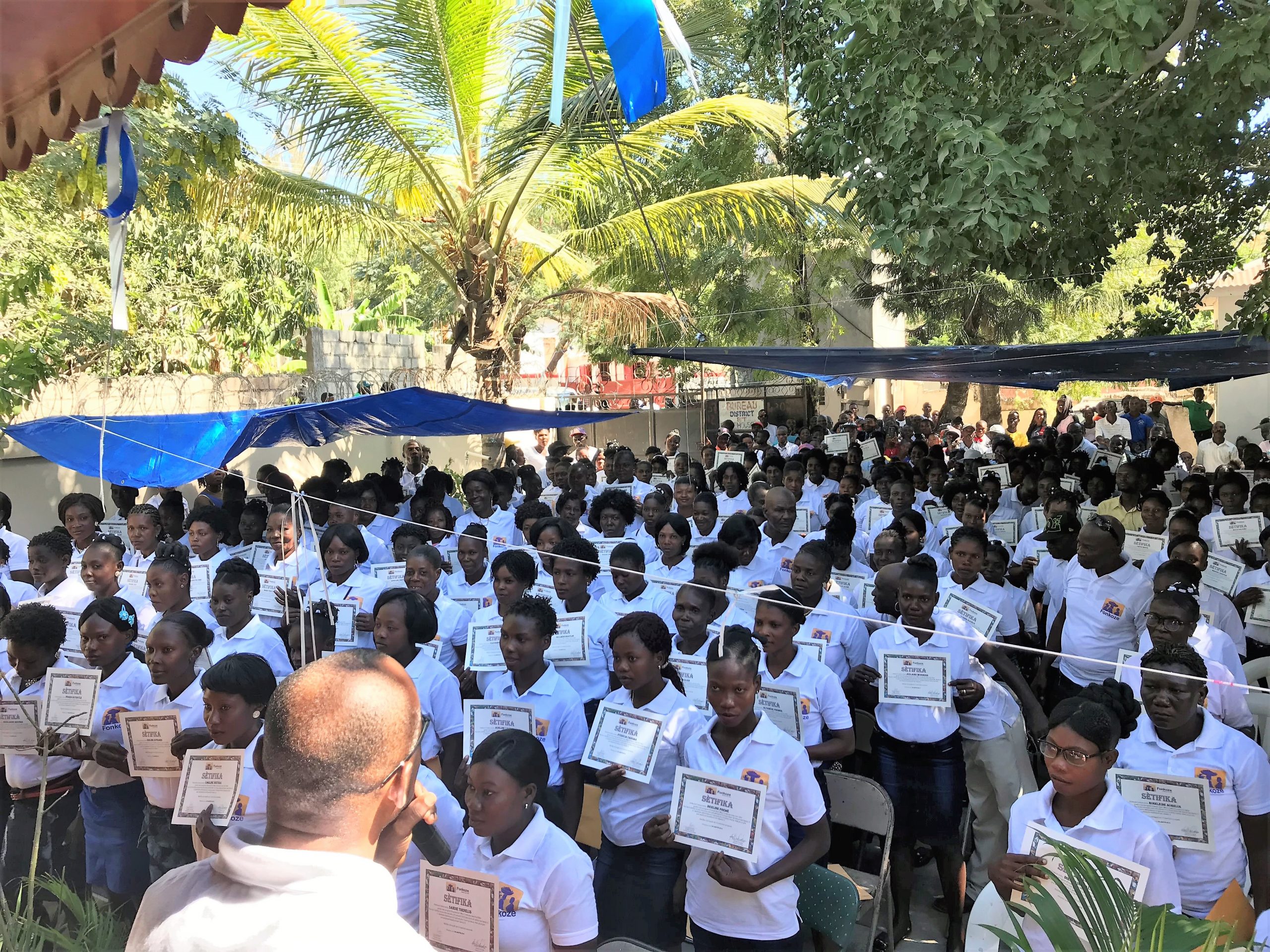By Sister Dale Jarvis
“I said goodbye to misery.” These words of a young Haitian have stuck with me since I attended the graduation of 200 women in the Chemen Lavi Miyo program in Gros Morne, Haiti, on January 24, part of Mercy Focus on Haiti. Having lived the life of a privileged woman in the United States, and being treated with respect as a Sister of Mercy, I have no idea of what it is like to live in misery. These women do, and they have spent 18 months moving from ultra-poverty to strength and courage. They stood tall: they can feed their children, they have a house to live in and they have a future.
I have never gone hungry, except by choice. Perhaps it was for a day but not more, and always for a higher purpose, such as being in solidarity with those who are poor or hungry. Yet I always knew I could eat whenever I wanted to. I do not believe engaging in events or actions in solidarity with others is wrong, or insincere, but I now know that the lesson is not that I will truly understand hunger; that will never happen. After my many experiences in Haiti, the lesson—the question—for me is, what am I responsible for? What can I do so that others do not have to be hungry? So that women who cannot feed their children can now not only feed them, but clothe them and send them to school?
What happened to me at that graduation is hard to explain. I know I cried through most of it. Those tears are visiting me even now as I recall looking out over the sea of women whose lives were changed, lives that are in many ways so very different from my own. And yet, at that graduation, all our lives were altered. I heard their words and saw women who have moved beyond misery and become women of strength. I heard them say, “Now I have eight goats and six chickens” and thought of my own vow of poverty, my desire to live more simply and to do as they do—give praise to God for what I do have.

I am the woman I am today because of family, because of community. How little I can claim to have done on my own. These women are truly strong; they started with nothing, and today can say, “Now if someone asks me for something, I can give it to them.” Their great joy is that now they can give, not just receive.
My desire today is that I continue to cry those tears, so I can clearly see what God is asking of me. Thank you, women of the Chemen Lavi Miyo programs, for giving me the strength to be the woman of Mercy God has called me to be. You are inspiration. Mesi Anpil.